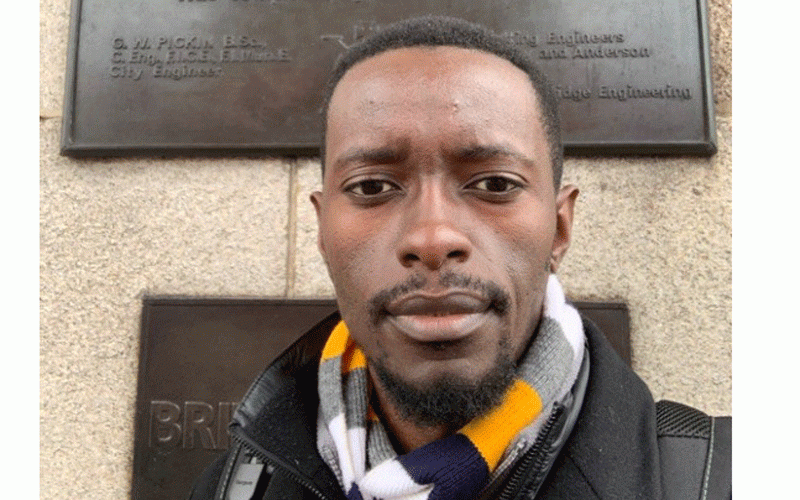
A BOARD meeting was in session, and I turned to my right and could see the gentleman next to me was scrolling his iPad. Immediately what came to mind was that my leader was looking at his notes so that he was ready to answer any questions raised by other members of the board. As the meeting progressed, he seemed more and more entrenched onto his iPad, at the same time occasionally interjecting the meeting giving his views. What then set me off was his iPad somehow leaned towards my side of the table and to the shock of my life, there was a half-naked woman dancing on the screen. It was clear to me that this older chap was fully distracted in this meeting.
To avoid myself getting distracted by what I had seen on his iPad, I turned my attention to the other side of the table. Throughout the meeting, from time-to-time members were either checking their cell phones or scrolling their iPads.
Attention spans are getting shorter and shorter, and people tend to get easily distracted. The dictionary defines distracted as being unable to concentrate because one is preoccupied by something worrying or unpleasant. I add that it is not only unpleasant or worrying matters that can absorb one’s attention, funny enough borrowing from my experience above, my esteemed leader was distracted by something which seemed not to worry him at all and unpleasant is the least of the emotions he felt at that time.
During our 2022 Icaz Winter School held in Victoria Falls I found myself with lots of distractions as we were in the middle of our year-end audit at my workplace, so as I tried to concentrate on the proceedings at the school, payment authorisations were coming onto my email and WhatsApp, auditors chasing me and of course my superiors were also requesting feedback on key issues. All these competing demands were easy distractions for me.
Are you distracted?
If you see yourself constantly checking your gadgets i.e., cellphone, iPad and laptop etc. when you are in a meeting or a gathering and even by yourself, it may be a sign that you are distracted. Do you at times see yourself just scrolling through your WhatsApp for no apparent reason or worse scrolling through your pictures in the middle of an activity, you are probably distracted. In the middle of conversations, do you find yourself losing your thought process? Do you suddenly get great ideas while in a meeting or think of important emails you have not responded to? In the middle of work, if you see yourself having a need to check YouTube or Twitter or any social platform after every few minutes, this is a strong indicator that you are easily distracted. Do you find yourself texting while driving or talking? Whenever a notification beeps, do you immediately stop whatever you are doing just to check what it is?
When your kids are having a meal, do you find yourself screaming at them to eat because they are glancing at the TV? Can your kid survive a few minutes without looking at their phone? These normally breed a culture of distraction. More and more kids are developing an addiction to distractions which then haunts them even as adults in the workplace as they just cannot concentrate on one thing at a time. I know of teenagers who read while sitting in front of the TV or with their headphones on and they say that's how they are able to concentrate. All this indicates how we have normalised distractions.
Distractions under multitasking
- Hyperinflation headache for accountants
- PAAB tightens screws on non-compliance
- Hyperinflation headache for accountants
- New drama, Soulmate nears completion
Keep Reading
Imagine a doctor performing a C-section while on a conference call or catching up with a game of football, I am sure all of us would be angered by such actions and can agree that, it is not multitasking, some would say this applies only to life and death situations, why would we think that we can do our work, check our phones send another text, without the same damage to our ability to concentrate?
According to brain researchers, true multitasking does not actually exist. Simon Sinek describes what most of us do as simply mental juggling or toggling between tasks, merely switching back and forth between tasks which he addresses in his writing that this is normally not smooth. Neither does it make us faster or more efficient, it actually slows us down. He further retorts that this constant switching between tasks even leads to more mistakes and worse at analytical reasoning.
“The true gift of a surgeon is the ability to single-mindedly focus on one person and complete a series of tasks over the course of many hours, “says neuropsychologist Cynthia Kubu, PHD.
“Based on over a half-century of cognitive science and more recent studies on multitasking, we know that multitaskers do less and miss information. It takes time (an average of 15 minutes) to reorient to a primary task after a distraction such as an email. Efficiency can drop by as much as 40%. Long-term memory suffers and creativity — a skill associated with keeping in mind multiple, less common, associations — is reduced.” Professor Paul Artchley said.
Causes of distraction at workplaces
Today’s upbringing especially among millennials and Gen Z is that kids grow up with too many things they necessarily do not need. Many toys while the TV and PlayStation are on, at the same time doing homework, so these kids are addicted to distractions and when they come to the workplace, those traits follow them.
Stress
Employers are not spending time dealing with the mental health state of their workforce. The employees do not take care of themselves mentally hence they come to work very stressed and just cannot concentrate and they try to find solace and validation in scrolling through social media which makes them even more frustrated as they are not mentally okay. One psychologist challenged senior executives in a meeting I was in attendance: “Why is it we never hear of someone filling a leave form for ‘mental leave’”, and he goes on to say that “an individual will be victimised if not laughed at by his boss if he asks for mental leave”.
Makwara is a chartered accountant with both local and international experience in finance, accounting, auditing and business strategy. He is part of the Institute of Chartered Accountants in Zimbabwe and the views expressed in this article are his personal views based on his professional experiences.
Anxiety
Our inability to deal with inadequacy or competing demands leads to Intense, excessive and persistent worry and fear about everyday situations. The economy is not getting better, school fees escalations and astronomical medical fees shortfalls and all this is making people anxious. To some we are heading into elections, and this brings excessive fear as they not sure what the future holds
What can we try and do
First acknowledge that all of us can be easily distracted and start making intentional habits to be alert to distractions and shut them off. Develop simple small habits:
Do not jump to your phone each time a notification tone rings,
Do not text or WhatsApp while driving at all
When in meetings unless it is really critical, do not put your phone on the table or have it in your hands, rather turn it off or turn off all notifications to allow yourself to concentrate on the meeting
Our recruitment needs to be revamped, let us hire the right person for the job. The description of the tasks should match with what one studied and what they are qualified for to avoid them not getting fulfilled in the role hence falling into distractions.
My favourite tip is avoiding events, meetings or conversations whose subject matter does not excite you. I find this reduces boredom which normally is the driver to scroll unnecessarily on your phone
Work on yourself, invest in self-worth, stress relieving activities as this reduces the need to validate yourself from social media likes and new friend requests. The more self-motivated you are, the lesser the need to look for distractions
Let's try to find fulfilling careers, things we love to do and make money while doing it. I know lots of kids doing articles but that's not their passion hence they get easily distracted from reading or doing their jobs. If you are at a job you do not love, do additional courses or study different fields and change your job into what you love. At times it's the company that's not right for you, change that company until you find where you are fulfilled. This is not easy with how our economy is like, but it can be a journey towards your rightful place, and
Zoom and Teams meetings should not be too long.
Let us learn to prioritise tasks, there is time for playing and time for work. Let us not lie to ourselves that we are great multi-taskers.
- Makwara is a chartered accountant with both local and international experience in finance, accounting, auditing and business strategy. He is part of the Institute of Chartered Accountants in Zimbabwe and the views expressed in this article are his personal views based on his professional experiences.






